热身 Warm-up
1 给下面的词语选择对应的图片 Match the pictures with the words.
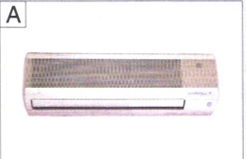
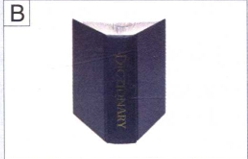

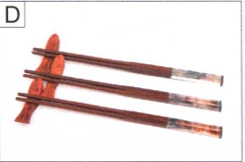
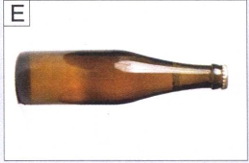

- cídiǎn 词典
- kuàizi 筷子
- kōngtiáo 空调
- dìtiě 地铁
- dēng 灯
- píngzi 瓶子
2 看图,说说他们在做什么 Look at the pictures and talk about what they are doing.
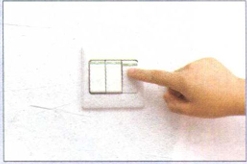
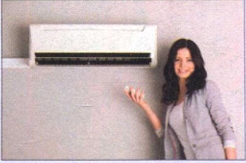


- ① guān dēng D. 关灯
- ② guān kōngtiáo A. 关空调
- ③ xǐ yīfu B. 洗衣服
- ④ huán shū C. 还书
课文 Texts 1 在教室 In the classroom 11-1
小明:我先走了。
同学:你去哪儿?
小明:我去图书馆借本书。
同学:帮我把这本词典还了吧。
小明:好,等一会儿你离开教室的时候,记得把灯关了。
同学:好的,放心吧。
生词 New Words
- 1. 图书馆 túshūguǎn n. library
- 2. 借 jiè v. to borrow, to lend
- 3. 词典 cídiǎn n. dictionary
- 4. 还 huán v. to return
- 5. 灯 dēng n. light, lamp
课文 Texts 2 在会议室 In the conference room 11-2
周明:会议结束后,别忘记把空调关了。
小丽:好的。王经理两点左右来了个电话。
周明:他已经到北京了?
小丽:是的,他正坐地铁来我们公司呢。
周明:等他到了就告诉我。
生词 New Words
- 6. 会议 huìyì n. meeting, conference
- 7. 结束 jiéshù v. to end, to finish
- 8. 忘记 wàngjì v. to forget
- 9. 空调 kōngtiáo n. air conditioner
- 10. 关 guān v. to turn off, to close
- 11. 地铁 dìtiě n. subway
课文 Texts 3 在客厅 In the living room 11-3
妈妈:还差一双筷子,你去拿一下。
儿子:今天怎么做了这么多菜?
妈妈:今天是你爸爸的生日。
儿子:真的啊?我把爸爸的生日忘了。那我们今天喝点儿啤酒吧。
妈妈:医生说你爸爸一口酒都不能喝,别让他看见酒瓶子。
生词 New Words
- 12. 双 shuāng m. pair
- 13. 筷子 kuàizi n. chopsticks
- 14. 啤酒 píjiǔ n. beer
- 15. 口 kǒu m. mouthful
- 16. 瓶子 píngzi n. bottle
4 这个笔记本电脑我去年买的时候要五千块左右,现在便宜多了。我想把这个电脑卖了,再买一个更好的。现在我每天起床后的第一件事就是打开电脑,看电子邮件。我已经很少写信,也很少用笔写字,已经习惯用电脑来学习和工作了。哪一天突然没有了电脑,我们怎么办呢?
生词 New Words
- 17. 笔记本 (电脑)
bǐjìběn (diànnǎo)
n. notebook, laptop - 18. 电子邮件
diànzǐ yóujiàn
e-mail - 19. 习惯
xíguàn
v./n. be used to
habit; to
拼音课文 Texts in Pinyin
1、Zài jiàoshì
Xiǎomíng: Wǒ xiān zǒu le.
tóngxué: Nǐ qù nǎr?
Xiǎomíng: Wǒ qù túshūguǎn jiè běn shū.
tóngxué: Bāng wǒ bǎ zhè běn cídiǎn huánle ba.
Xiǎomíng: Hǎo, děng yìhuìr nǐ lí kāi jiàoshì de shíhou, jìde bǎ dēng guān le.
tóngxué: Hǎo de, fàng xīn ba.
2、Zài huìyìshì
Zhōu Míng: Huìyì jiéshù hòu, bié wàngjì bǎ kōngtiáo guān le.
Xiǎolì: Hǎo de. Wáng jīnglǐ liǎng diǎn zuǒyòu lái le ge diànhuà.
Zhōu Míng: Tā yǐjīng dào Běijīng le?
Xiǎolì: Shì de, tā zhèng zuò dìtiě lái wǒmen gōngsī ne.
Zhōu Míng: Děng tā dàole jiù gàosù wǒ.
3、Zài kètīng
māma: Hái chà yì shuāng kuàizi, nǐ qù ná yíxià.
érzi: Jīntiān zěnme zuò le zhème duō cài?
māma: Jīntiān shì nǐ bàba de shēngrì.
érzi: Zhēn de a? Wǒ bǎ bàba de shēngrì wàng le. Nà wǒmen jīntiān hē diǎn píjiǔ ba.
māma: Yīshēng shuō nǐ bàba yì kǒu jiǔ dōu bù néng hē, bié ràng tā kànjiàn jiǔ píngzi.
4、Zhège bǐjìběn diànnǎo wǒ qùnián mǎi de shíhou yào wǔ qiān kuài zuǒyòu, xiànzài piányi duō le. Wǒ xiǎng bǎ zhège diànnǎo mài le, zài mǎi yí gè gèng hǎo de. Xiànzài wǒ měi tiān qǐ chuáng hòu de dì yí jiàn shì jiù shì dǎ kāi diànnǎo, kàn diànzǐ yóujian. Wǒ yǐjīng hěn shǎo xiě xìn, yě hěn shǎo yòng bǐ xiě zì, yǐjīng xíguàn yòng diànnǎo lái xuéxí hé gōngzuò le. Nà yì tiān tūrán méiyǒule diànnǎo, wǒmen zěnme bàn ne?
注释 Notes
1 “把”字句1:A把B+V+…… The Ba-Sentence 1: A把B + V +……
汉语中,表示对确定的人或确定的事物做出相应处置,可以用“把”字句,其结构为“A把B+V+……” 。这种 “把” 字句多用于对别人的请求、命令的情境中。注意:A为动作的发出者;B为动词涉及的对象,必须是特指或已知的。例如:
In Chinese, a ba-sentence can be used to indicate a certain action done on a definite person or thing, the structure being “A把B + V +……”. This type of ba-sentence is often used to request or order other people to do something. It is noteworthy that A is the agent of the action, and B is the patient. Both A and B should be specific or known to the speaker and the listener. For example:
- 请你把衣服洗了。
- 帮我把这本词典还了。
- 你把灯关了吧。
- 我把爸爸的生日忘了。
否定副词和能愿动词等应该放在 “把” 字的前边,例如:
If there is a negative adverb or a modal verb etc., it should precede “把”. For example:
- 你没把书给我。
- 你别把手机忘了。
- 我不能把电脑给你。
- 你可以把空调关了吗?
练一练 Practise
用提示词完成句子 Complete the sentences with the words given.
- 房间里有点儿冷,你可以 __________?(关门)
- 你发烧还没好,快 __________。(吃药)
- 吃饭以前别忘了 __________。(洗手)
2 概数的表达2:左右 Expression of Approximate Numbers 2: 左右
汉语中,“左右” 用在数字后面表示概数,如:三点左右,五个左右,十年左右。例如:
In Chinese, “左右” can be used after a numeral to indicate an approximate number, such as “三点左右”(around three o’clock), “五个左右”(about five), and “十年左右”(ten years or so). For example:
- 周末我一般十点左右起床。
(2)我们公司有五百人左右。
(3)王经理两点左右来了个电话。
(4)这个笔记本电脑我去年买的时候要五千块左右。
● 练一练 Practise
完成对话 Complete the dialogues.
(1)A:你每天几点睡觉?
B:____________________。
(2)A:你学了多长时间的汉语了?
B:____________________。
(3)A:从你家到学校坐多长时间车?
B:____________________。

Comments